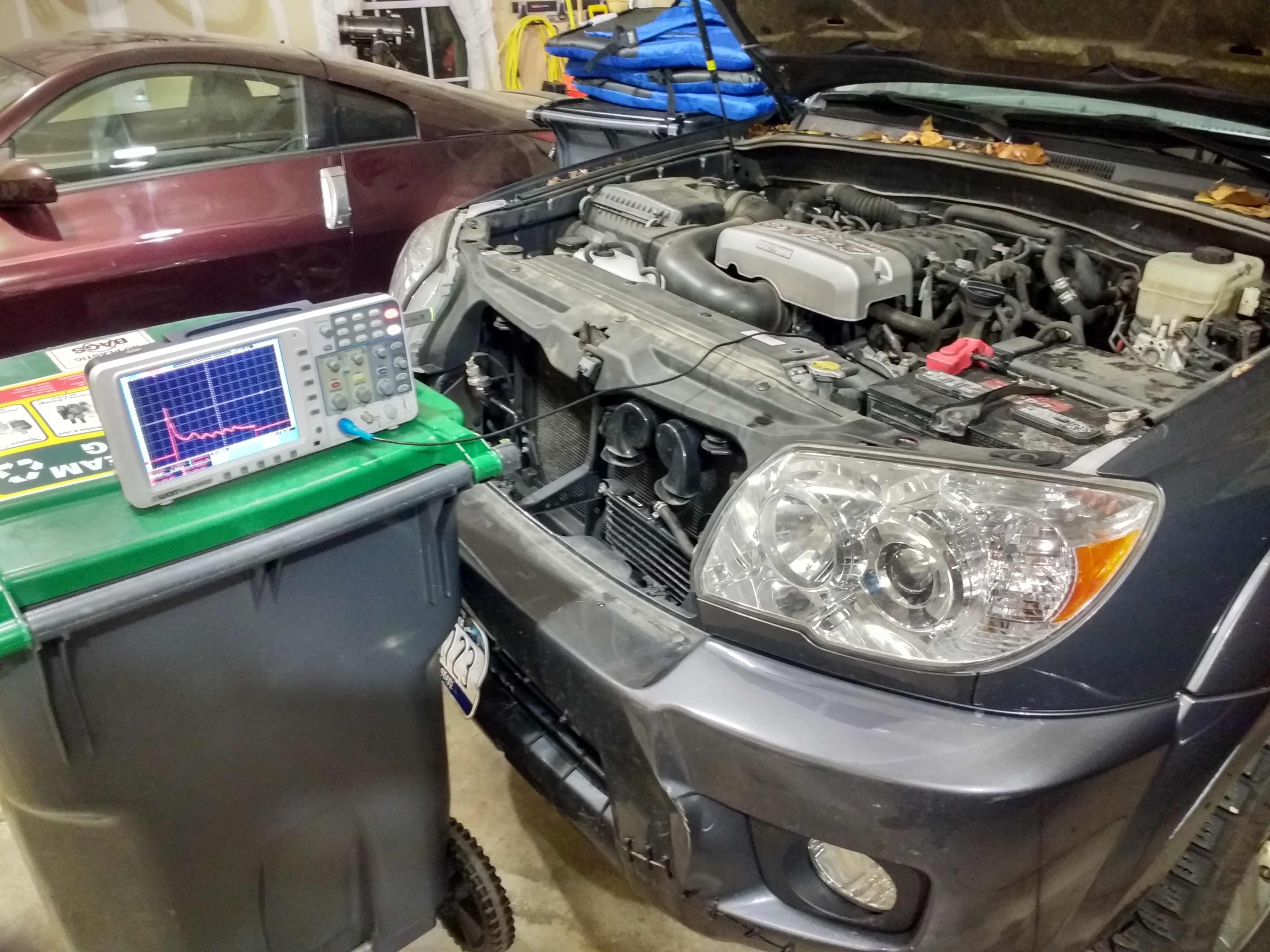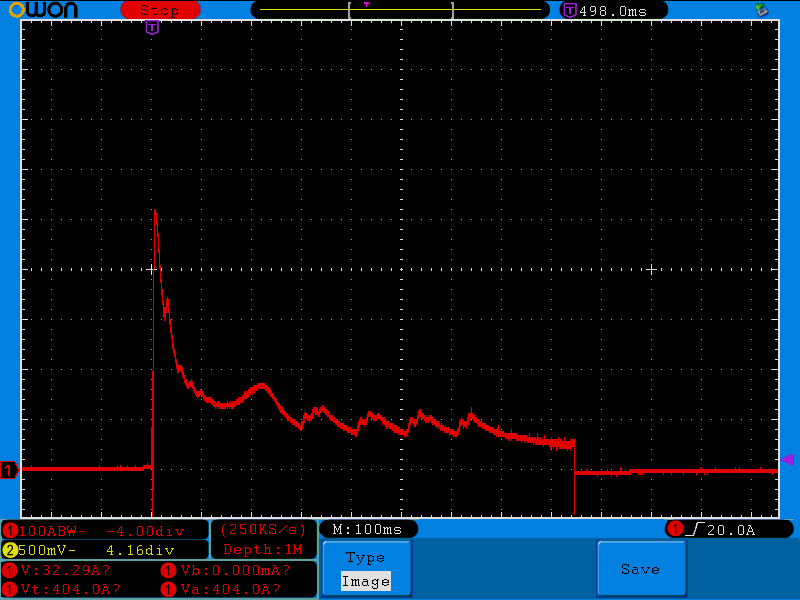I took some measurements on my car today. I hooked the 650A current clamp to an oscilloscope and measured the battery current during starting.

The engine is a 4.7l V8, which was relatively cold, only having been started a few times briefly before I got the scope triggering right. (You can also see how I fixed my cracked fender with a drill and zip ties at the bottom right).
The battery current looks like this:

The current peaks at just above 500A for about 20ms, then drops below 200A within 50ms. It stays around 150A until about 300ms into the start, then drops to about 100A for the remaining 500ms. The total start time is around 850ms. This doesn't seem too bad.
To simulate what this discharge current would do to the capacitor voltage, I made a quick LTspice simulation using a piecewise-linear current source to model the starter current. I assume the capacitor starts at 14V.

The simulation shows how the capacitor voltage would drop if the starter drew the same current:

In this simulation, the capacitor voltage ends at 12.4V, so (12.4^2/14^2) = 78% of the energy remains in the capacitor. This is very interesting.
Of course, the current profile will probably look different with the capacitor in place of the battery, but this data is encouraging. It doesn't really take that much energy to start a car. In this simulation, it only took around 1500 J.
 Ted Yapo
Ted Yapo
Discussions
Become a Hackaday.io Member
Create an account to leave a comment. Already have an account? Log In.
drift stitches
Are you sure? yes | no
Yep. It's funny; I had never seen drift stitches before I fixed that bumper - then I saw the nice cross-stitches on the web and figured I'd re-do it in that style when they failed. I used UV-resistant ties, and they're still strong after almost three years now.
The thought of drifting in the 4Runner makes me laugh. The 350Z in the background, sure :-)
Are you sure? yes | no